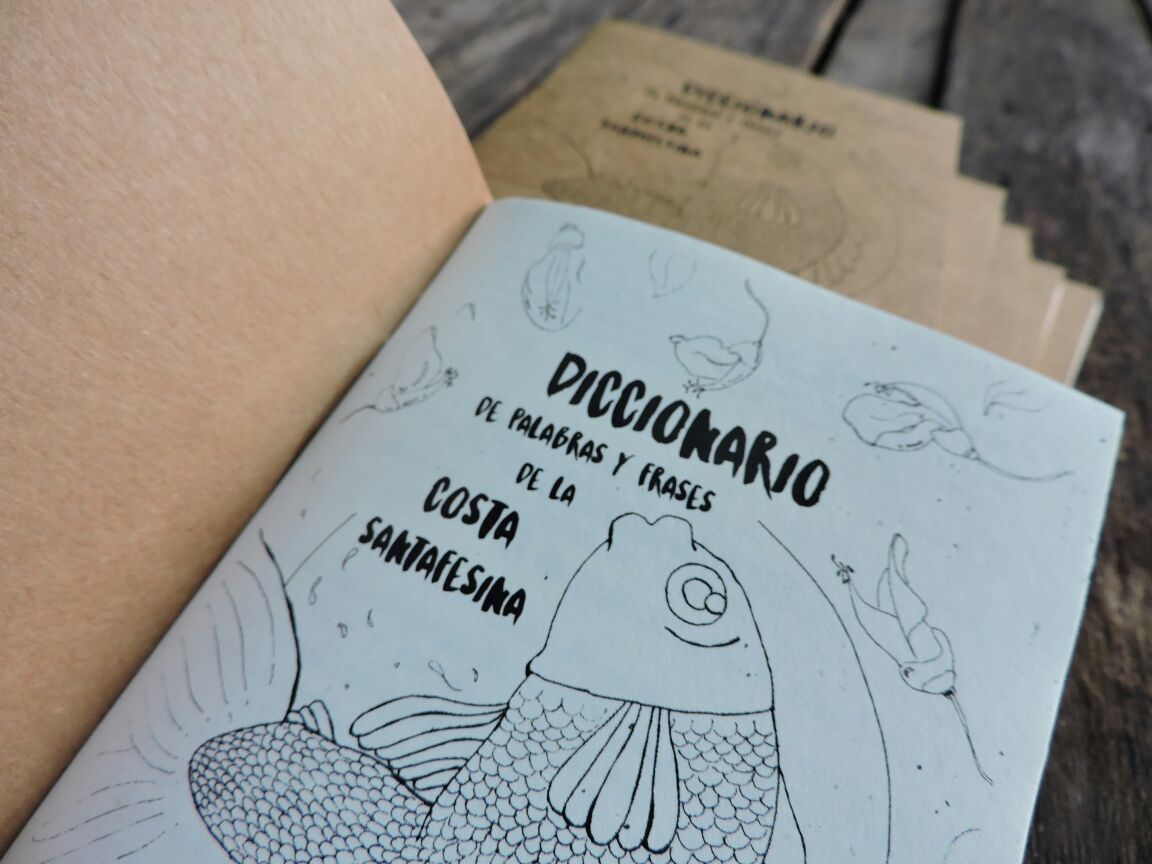A commitment to the collective: dictionary of words and phrases from the Santa Fe coast
DOI:
https://doi.org/10.19137//praxiseducativa-2018-220108Keywords:
ethical act, dialect, dictionary, identity, teaching narrationAbstract
This text is a teaching narration about the theoretical and experimental exercise of the project “Dictionary of words and phrases from the Santa Fe coast”, which was developed by the subject Language and Literature in a secondary school in Santa Rosa de Calchines (Garay department, Santa Fe). As the author suggests, thinking about the teaching practice within the ethical act, a class narrative writing was adopted (Bajtín, Bubnova). This project covers the study of concepts such as; identity (Hall), understood as a collective construction in relation to otherness, and dialect (Halliday, Zambrano Castro), understood as a regional variety which enables the self-recognition. The goals of this work are to make known the project and to debate on lessons and teaching narrations as a thinking strategyDownloads
References
Una vergüenza menos y una libertad más (17 de junio de 2008). Página 12. Recuperado de https://www.pagina12.com.ar/diario/universidad/10-106152-2008-06-17.html
Antelo, E. (2010) Notas sobre la (incalculable) experiencia de educar. En Frigerio y Diker (comps.) Educar: ese acto político (pp. 173-182). Paraná: EditorialFundación La Hendija.
Aranda, P. (2017). [2015]. Diccionario de palabras y frases de la costa santafesina. Santa Fe: Ediciones del campamento.
Bajtín, M. (1999). [1979]. El problema del texto en la lingüística, la filología y otras ciencias humanas. En Bajtín, Estética de la creación verbal (pp. 294-323). Siglo XXI editores: México. Trad. de T. Bubnova.
Larrosa, J. (2000) Elogio de la risa o de cómo el pensamiento se pone, para bailar, un gorro de cascabeles. En Larrosa, J. Pedagogía profana: Estudios sobre lenguaje, subjetividad, formación (pp. 149-164). Buenos Aires: Ediciones Novedades Educativas.
Raiter, A. (2015) “Voloshinov: construcción dialéctica del sujeto individual y social en y por el lenguaje”. Texturas, núm. 14, UNL: Santa Fe. Recuperado de https:// bibliotecavirtual.unl.edu.ar/publicaciones/index.php/Texturas/article/view/4788
Zambrano Castro, W. (2008) “La lengua: espejo de la identidad”. Investigación, revista del Consejo de Desarrollo Cienotífico, Humanístico y Tecnológico de la Universidad de los Andes, Mérida, Venezuela, pp. 63-65. Recuperado de http://www.saber.ula.ve/bitstream/123456789/27675/1/articulo19.pdf.
Bixio, B. (2012) Consideraciones sociolingüísticas. Lenguaje y discurso en las instituciones escolares. En Bombini, G. (coord.) Lengua y literatura. Teorías, formación docente y enseñanza (pp. 23-49). Buenos Aires: Biblios.
Bubnova, T. (1997) “El principio ético como fundamento del dialogismo en Majaíl Bajtín”. Escritos, Revista del Centro de Ciencias del Lenguaje, Número 15-16, enero-diciembre de 1997, pp. 259-273.
Defagó, C. (2011) El lenguaje como conocimiento: aportes para la didáctica de la lengua. En Gerbaudo, Analía [et.al.] La lengua y la literatura en la escuela secundaria (pp. 187-202). Santa Fe: UNL.
Freire, P., (2014). [1993] Octava carta: identidad cultural y educación. En Freire, P., Cartas a quien pretende enseñar (pp. 115-122). Buenos Aires: Siglo Veintiuno Editores.
Gerbaudo, A. (2011) El docente como autor del currículum: una reinstalación política y teórica necesaria. En Gerbaudo, Analía [et.al.] La lengua y la literatura en la escuela secundaria (pp. 17-27). Santa Fe: UNL.
Hall, S. (2003) Introducción: ¿quién necesita <>? En Hall, S. y Du Gay, P. (comps.), Cuestiones de identidad cultural (pp. 13-39). Buenos Aires: Amorrortu.
Halliday, M. A. K. (1982) El lenguaje como semiótica social: La interpretación del lenguaje y del significado. México: Fondo de Cultura Económica

Downloads
Published
Issue
Section
License
Copyright Notice
Editorial Committee Educational Praxis Magazine:
I hereby declare that I am the author of the article titled (article name), that it is original and my own and that it was not previously published in any other format or medium. I declare to know that the magazine will not charge me any type of fee under any circumstances, nor will I receive any type of monetary compensation If it were accepted for publication in Educational Praxis, I authorize the aforementioned magazine to publish it digitally and to advertise it on its social networks.
If the work is published, I adhere to the Creative Commons license called "Attribution - Non-Commercial Share Alike CC BY-NC-SA", through which it is allowed to copy, reproduce, distribute, publicly communicate the work and generate derivative works, as long as when the original author is cited and acknowledged. This license has been used since September 2018. In 2016 CC BY NC ND 4.0 was adhered to; and in the years 2017 and 2018 (January-August) CC BY NC 4.0.
This CC BY-NC-SA Share Alike license does not, however, permit commercial use of the work. As an author, the journal may establish additional agreements for the non-exclusive distribution of the version of the work published in the journal, it allows me to self-archive the published articles, in their post-print version, in institutional, thematic repositories, personal web pages or any other relevant use. with the recognition of having been first published in this journal.
Educational Praxis adheres to DORA (Declaration on Research Assessment) signed in San Francisco, California, on December 16, 2012, and to the Declaration of Mexico (Joint Declaration LATINDEX - REDALYC - CLACSO - IBICT).














_(1)2.png)


3.png)











_(2).png)






2.jpg)









